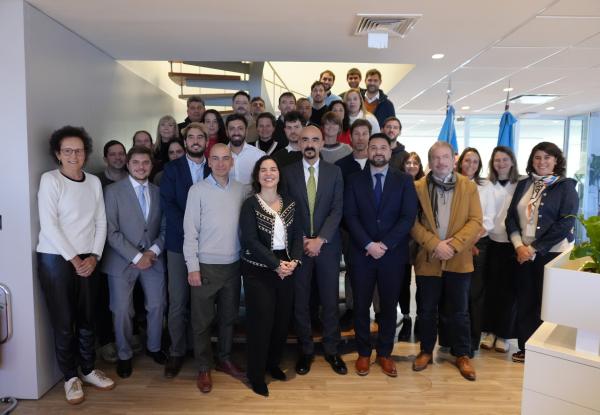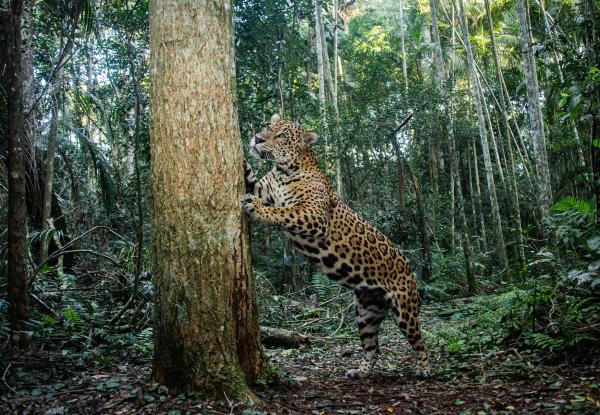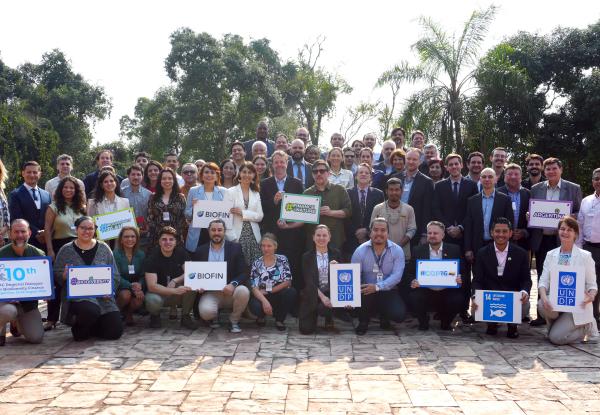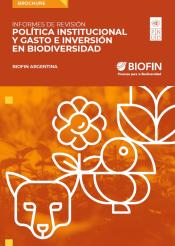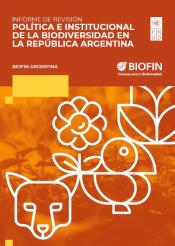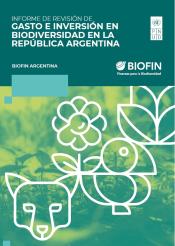Argentina
Argentina is one of the countries with the greatest biogeographical diversity in the world. It has 18 ecoregions: 15 continental, 2 marine, and 1 in Antarctica. They harbour a great diversity of species, eight of which have been classified as having the highest priorities for worldwide conservation.
Misiones preserves 52% of Argentina´s biodiversity and hosts one of the world's biodiversity hotspots, the Atlantic Forest. It is also the only carbon-negative province in the country.
Chaco is part of the Gran Chaco Americano. This ecosystem constitutes the largest forest mass in South America, after the Amazon. The wide variety of environments that it presents, such as forests and shrublands, grasslands, savannahs, estuaries, and wetlands, translates into a vast diversity of plant and animal species that make this region a key area for the conservation of biodiversity.
Argentina officially started its methodology phase in March 2022, and BIOFIN has developed a sub-national strategy focusing on the Provinces of Misiones and Chaco, which are rich in biodiversity.
BIOFIN Argentina is implementing a hybrid methodology: Subnational – National and Analytical – Pragmatic approach. Political governance and articulation between national and sub-national authorities regarding natural resources management is of the utmost importance in Argentina since provinces have control of their natural resources under national legislation. The analytical-pragmatic approach is important because it allows working on a good diagnosis of the national and provincial situation while identifying financial solutions already being implemented in the territory. This generates support from the program to improve its effectiveness.
BIOFIN Argentina has made substantial progress in biodiversity finance by producing critical reports, fostering strong partnerships, and designing innovative financial mechanisms at both national and subnational levels.
National-Level Achievements
BIOFIN developed and validated a full suite of reports: the Policy and Institutional Review (PIR), the Biodiversity Expenditure Review (BER), the Financial Needs Assessment (FNA), and the Biodiversity Finance Plan (BFP). These documents informed the new National Biodiversity Strategy and Action Plan (NBSAP), aligning with the Kunming-Montreal Agreement and presented at COP16. BIOFIN’s input was key in shaping financial targets for the NBSAP and is explicitly acknowledged.
Furthermore, BIOFIN played a central role in establishing a finance-focused working group within CONADIBIO, aiming to integrate sustainable production and biodiversity conservation through innovative financial mechanisms. This group reflects growing institutional commitment and cross-sector collaboration.
Subnational Progress
In Misiones, BIOFIN completed the PIR, BER, and FNA and finalized the BFP in 2024. The plan identifies nine financial solutions with the potential to mobilize USD 420 million over 10 years. The provincial Ministry of Finance has endorsed it and is among the most institutionalized BIOFIN processes globally. Misiones has also initiated early implementation and hosted the 10th Regional Biodiversity Finance Dialogue.
In Chaco, BIOFIN finalized the PIR and BER in 2023 and advanced the BFP following a 2024 MoU between the provincial governor and UNDP. The plan, currently being finalized, proposes seven financial solutions co-designed with the Ministry of Production and Sustainable Development, highlighting strong political support and intersectoral cooperation.
BIOFIN Argentina’s multifaceted progress highlights its leadership in mainstreaming biodiversity finance through strategic planning, institutional engagement, and actionable solutions. Both nationally and in key provinces, BIOFIN has laid a strong foundation for long-term impact, while pioneering new instruments to mobilize resources for nature.
22 May 2025
BIOFIN Argentina has moved forward with the early-stage implementation of several financing mechanisms:
-
Jaguar Protection Insurance (2025): Launched in Misiones, this insurance compensates farmers for livestock lost to jaguar predation, helping reduce retaliatory killings and promoting species coexistence.
-
FIRE Argentina & Nature Finance Guide (2025): A dual tool to strengthen access to biodiversity finance, combining a technical project guide and an online platform that connects stakeholders with funding sources.
-
Subsidy and Environmental Impact Analysis (2025): Identifies harmful subsidies and recommends policy shifts to redirect funds toward biodiversity-positive investments, with national, Misiones, and Chaco-level data.
-
Corporate Sponsorship Feasibility Study (2025): Evaluates the potential for private sector sponsorship of national parks, aiming to unlock new streams of biodiversity funding.
-
Jurisdictional REDD+ Program (Misiones, 2025): Supports the issuance of carbon credits for the 2017–2022 period under the Verra VCS-JNR standard, helping generate sustainable revenue for forest conservation.
-
Biodiversity Credits Feasibility Study (Misiones, 2025): Investigates the potential for a biodiversity credit mechanism, paving the way for market-based conservation finance.
This publication was produced within the framework of the Biodiversity Finance Initiative (BIOFIN) Argentina project. The analysis and conclusions expressed herein do not necessarily reflect the views of the United Nations Development Programme, its Executive Board, or its Member States.
This publication was produced within the framework of the Biodiversity Finance Initiative (BIOFIN) Argentina project. The analysis and conclusions expressed herein do not necessarily reflect the views of the United Nations Development Programme, its Executive Board, or its Member States.
